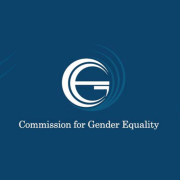|
Getting your Trinity Audio player ready...
|
In a victory for South Africa’s constitutional principle of public participation in democratic processes, the Constitutional Court on Friday handed down a unanimous judgment that found that the National Assembly failed to comply with its constitutional obligation to facilitate reasonable public involvement in recommending persons to be appointed as members of the Commission for Gender Equality (CGE) in 2022.
Read the judgment online at the bottom of this page.
The matter follows the 2022 recommendation to President Cyril Ramaphosa for the appointment of the CGE chairperson and four other commissioners, by Parliament’s portfolio committee on women, children and people with disabilities. Corruption Watch (CW) approached the court to have the appointments declared invalid – not based on the suitability of the five commissioners, but due to the rushed and limited approach adopted by the committee in seeking public submissions on the process.
The judgment notes: “The appointment of the fifth to ninth respondents as Commissioners to the Commission for Gender Equality with effect from 1 March 2023 is invalid.” However, the declaration of invalidity is suspended for 12 months to enable the CGE and Parliament to start the process again.
“The right of members of the public to participate meaningfully in democratic governance is a hallmark of our constitutional democracy,” the judgment further reads. “Public involvement in the legislative and other processes of all three spheres of government is not merely a fashionable accessory. It is a thread woven into the fabric of our democracy.”
Unconstitutional
CW argued that the means adopted by the portfolio committee in the recruitment process were not within reason, given the provisions of section 59 (1)(a) of the Constitution, which covers public participation. In this instance, members of the public were meant to make submissions on an online Google form with a character limit of 2 000, which had to be filled in and submitted within a period of 10 days from the time of the announcement of the short list in early September 2022. All of this was to be done without access to the CVs of the shortlisted candidates on whose eligibility the public was meant to make the submissions.
One of the points that arose during the hearing of arguments in March this year was that of urgency on the part of the portfolio committee in having to fill the positions in 2022 because the CGE faced a leadership deficit that needed to be addressed swiftly.
The term for CGE commissioners typically runs for a period of five years, and had the sixth Parliament, which was in place when the previous term for commissioners would have ended, done its duty of launching a recruitment process to fill the positions, the committee would not have been pressed to invoke a rushed process of the recommendation phase.
In failing to allow for meaningful participation from the public, Parliament deprived them of a viable mechanism that has previously been tested.
“The principles upon which this Court adjudicates public participation challenges are well settled. They may be summarised as follows:
- Parliament is under a constitutional obligation to facilitate public involvement in its legislative and other processes.
- A failure to comply may render the conduct (whether or not it is legislative) invalid and liable to be struck down as unconstitutional.
- Parliament is accorded a wide discretion to determine the manner in which it facilitates public involvement, and the courts must take due cognisance of what Parliament considers to be reasonable.
- The nature of the legislation or other process and its importance to particular interest groups or sectors of the public may warrant the employment of different measures to facilitate appropriate public involvement.
- The subject matter of the parliamentary process which requires public involvement, its purpose and importance, the urgency with which the process must be conducted and considerations of practicality and efficiency are all relevant to determining whether the measures adopted are reasonable.
- Whether, in relation to a specific challenge, the obligation has been met is to be judged by an objective standard of reasonableness. The test is sufficiently flexible to permit an evaluation of a wide range of factors in a fact-specific enquiry.”
Public must be included
For the public to have confidence in the leadership of Chapter 9 institutions that hold the executive and the rest of government to account on the fulfilment of policy directives, cost effective, fair and competitive procurement processes, and adherence to national policies that address challenges faced by South Africans daily, they must be able to meaningfully participate in candidates’ ascent to those positions of authority.
The judgment further states: “The public and organs of civil society must be informed of the matter requiring public involvement … sufficient time must be given to allow for public participation. Participation must occur at a stage in the process when it is possible for the public participation input to alter or influence the outcome of the parliamentary process.
“Parliament must consider the views and comments of members of the public in its deliberations and decision-making. Parliament is not bound by the views or comments but should demonstrate a preparedness to be guided by the public involvement process.”
Parliament was further ordered to pay CW’s legal costs in the matter.






